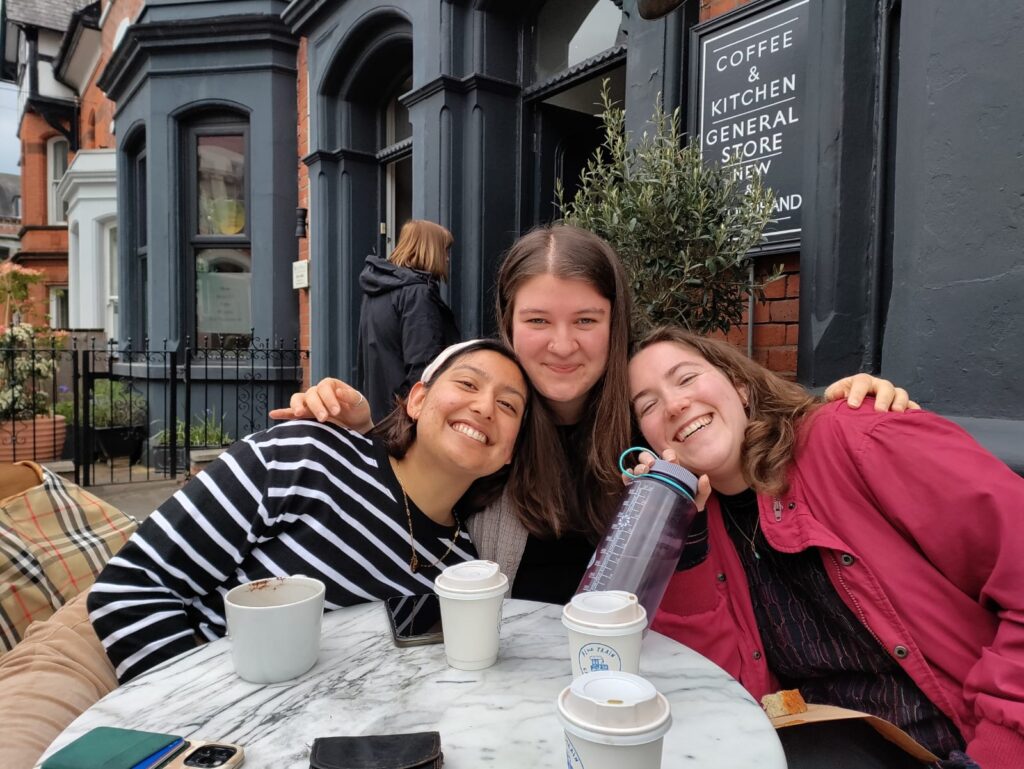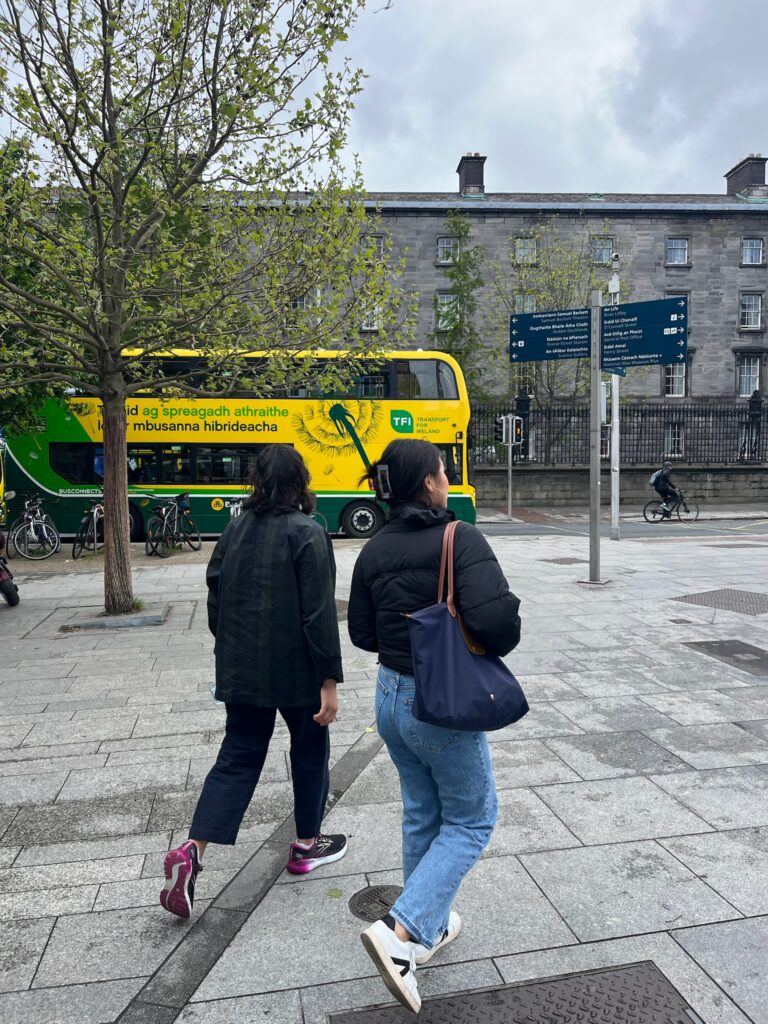Try as I might, I find it difficult not to over-romanticize my time here in Ireland. This small island has a charm that simply cannot be shaken or overstated. It sounds trite, but it’s true that green is simply greener here (all that rain pays off in the end). My life in Belfast is dotted with small, everyday delights like the Queen’s Film Theatre, flowers in bloom on campus, and everyone gathering on the Botanic green on sunny days. The bigger delights of late include: seeing dolphins, a shark, some puffins, and seals with other Mitchell scholars on a boat tour; touring ruins of centuries-old castles; and witnessing huge moments for transitional justice and human rights activism across Northern Ireland.
I have been so grateful to work for the Committee on the Administration of Justice during my year in Belfast. My work with them has included legal research, putting together a few issues of their human-rights newsletter Just News, and attending conferences with other human rights organizations like ICCL, who do important civil liberties work in Ireland. I feel very proud to have contributed research to the recent report, ‘Bitter Legacy: State Impunity in the Northern Ireland Conflict,’ compiled by a panel of international experts. The report detailed a deliberate and systematic pattern of impunity perpetrated by the UK government during the Northern Ireland conflict, which resulted in an abject failure to investigate and prosecute human rights abuses perpetrated by state actors during the conflict, contrary to the UK government’s international and domestic human rights obligations.
My time in Belfast will continue to ground my views on transitional justice and my human rights research and advocacy. Transitional justice is a small field, but one that resonates deeply across all countries, and one which has been cast in stark relief by recent headlines: as the UK Legacy Act is challenged in domestic and international courts; as the ICC continues to issue arrest warrants for current state leaders in breach of international humanitarian law; and, closer to home, as former state leaders like Donald Trump are held liable in domestic courtrooms for criminal acts. While I always imagined pursuing a career in transitional justice abroad, my time in Belfast has made me consider how I can work on issues of accountability and rule of law back in the States.
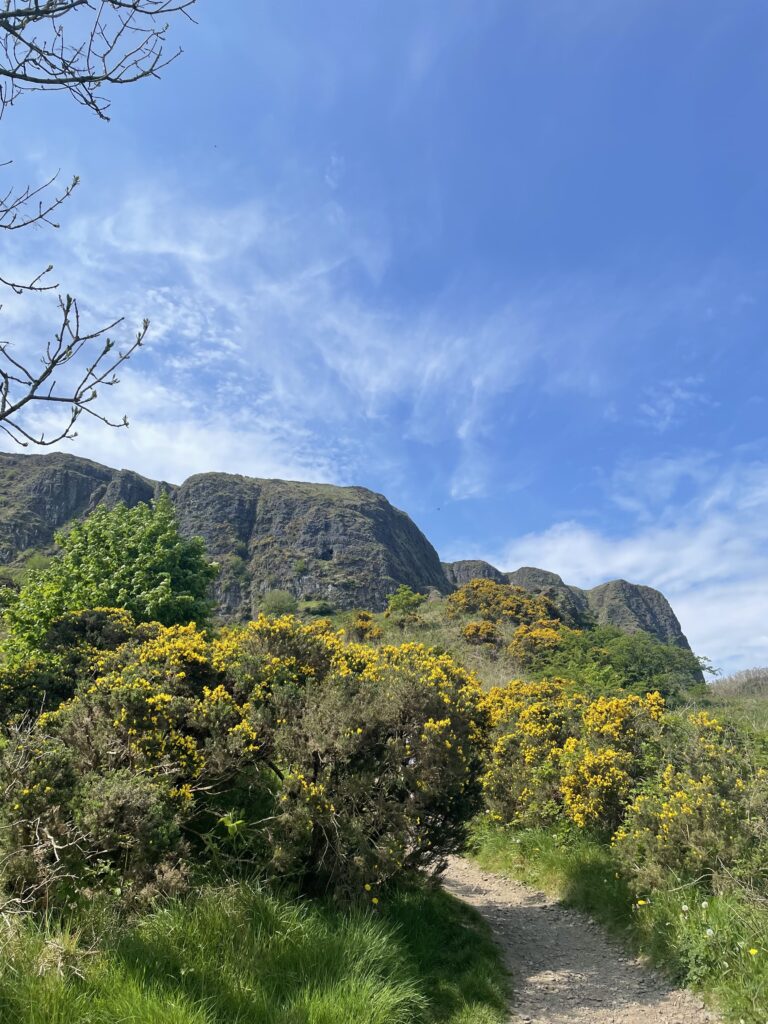
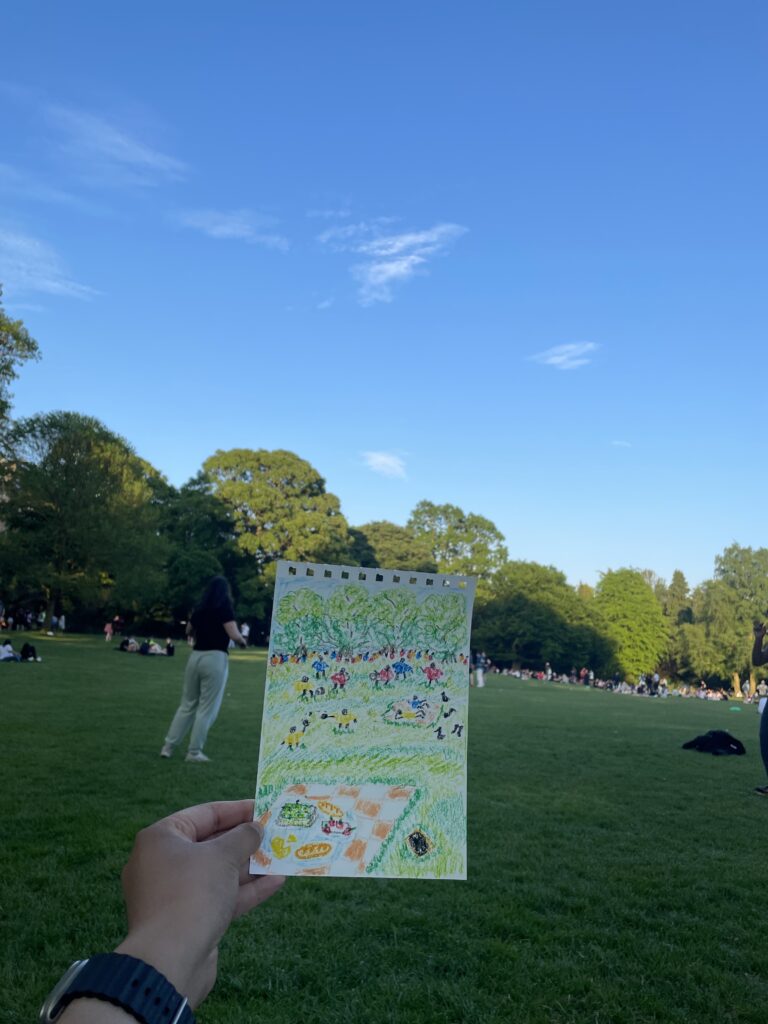
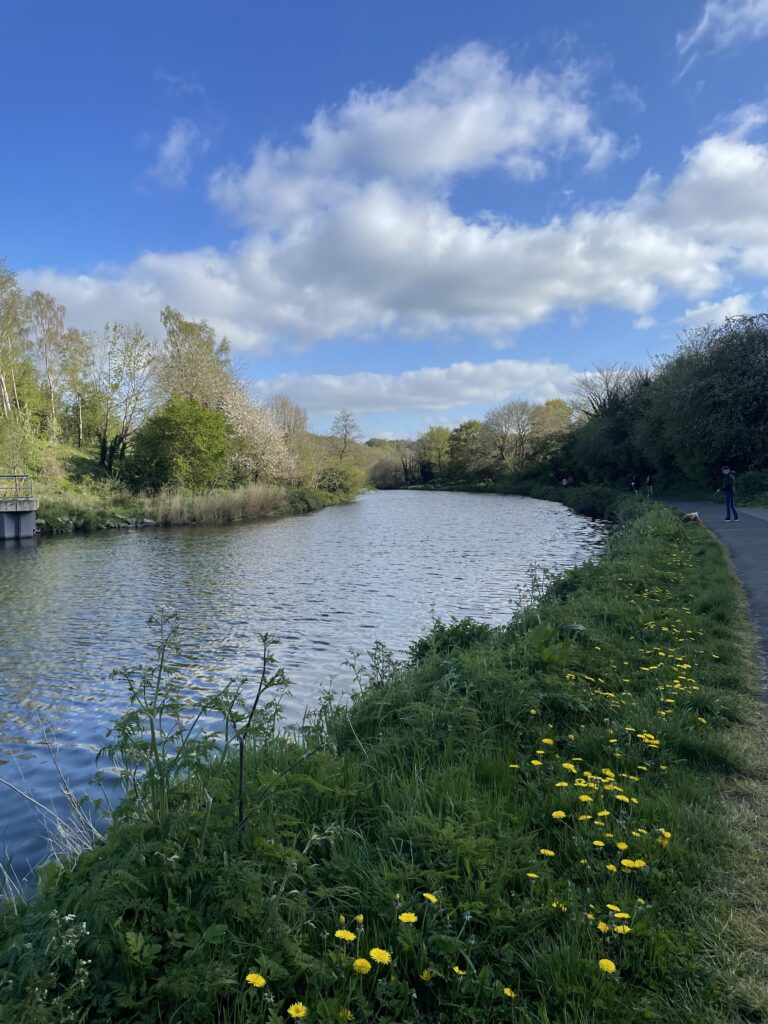
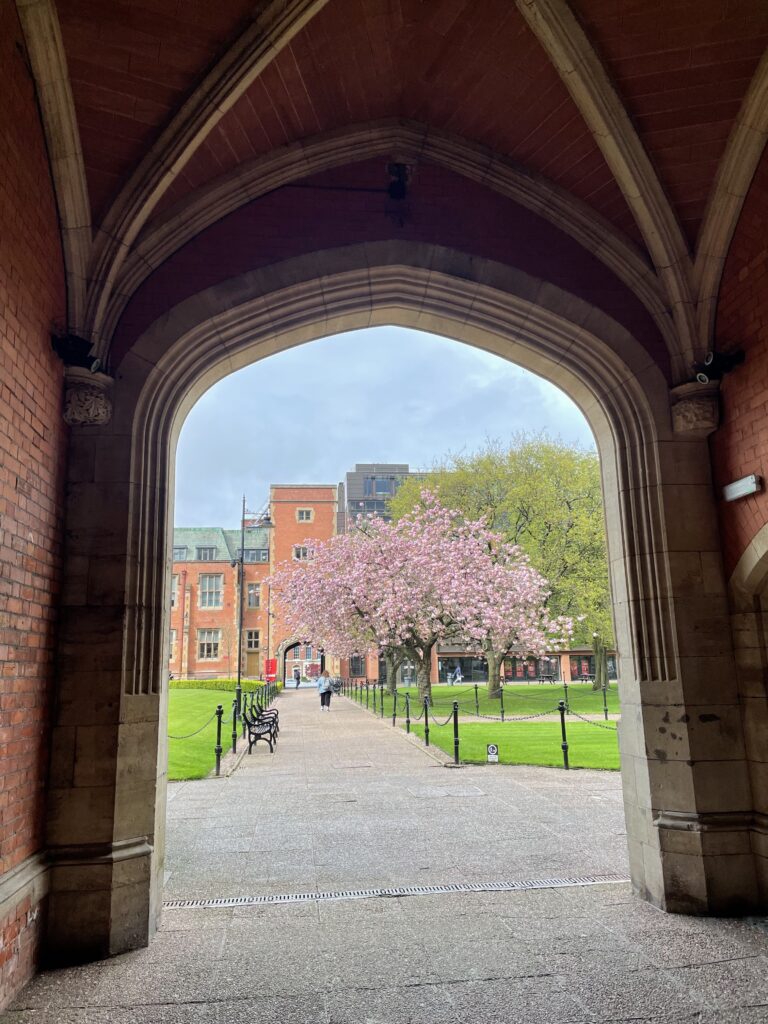
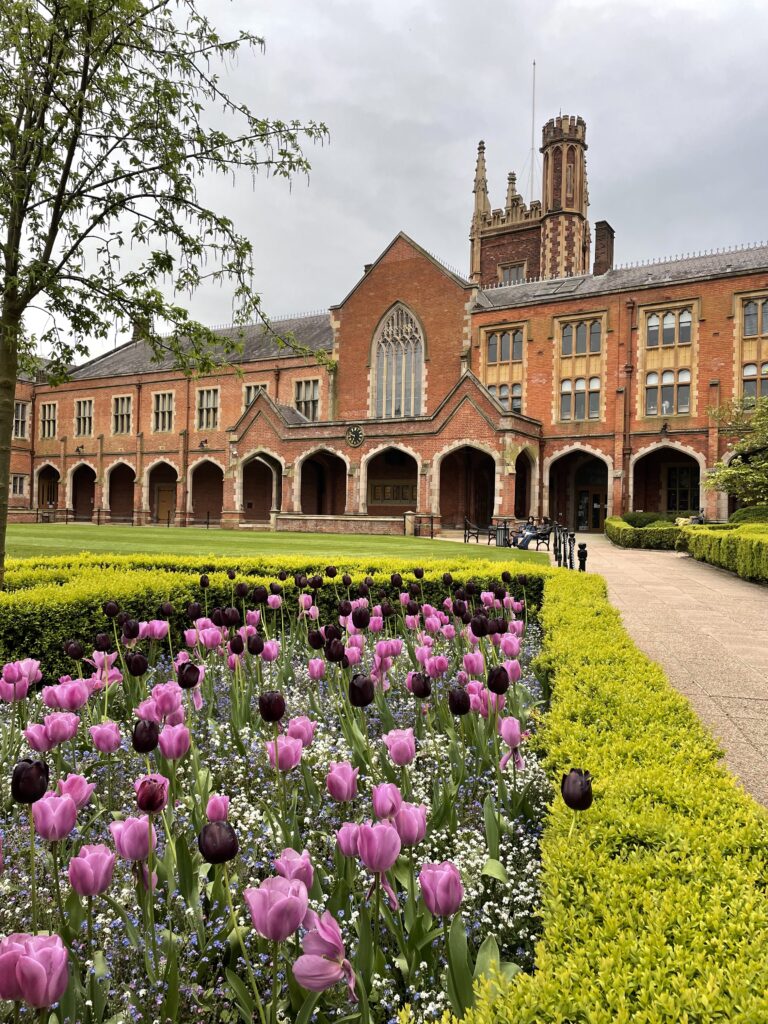

I’ve been fortunate to find gems of friends here in Belfast from Northern Ireland, Scotland, the Republic of Ireland, and of course other Americans (can’t shake them). Many of my friends living in the States and other places in Europe have also come to visit me, which I’ve been so grateful for. I couldn’t have asked for a better birthday celebration, with my high school friends visiting and my new Belfast friends joining for pints at Kelly’s and The Sunflower, a drag show at The Maverick, and late-night dancing at Ulster Sports Club. It’s a birthday I’ll always remember. There are lows in living abroad, too – homesickness in particular, as expected – but my friends here soften the lows and make the highs even richer.
Much as Belfast has made me consider how to align my career goals with accountability and human rights in the States, it has also made me consider how to live more mindfully at home when I return back to D.C. in September. The affinity I’ve grown for Google Maps can surely help me explore my own home city and state, and the openness to new friendships I’ve adopted here may help me branch out more when I return, too. In other words, study abroad changed me and that is my truth.
